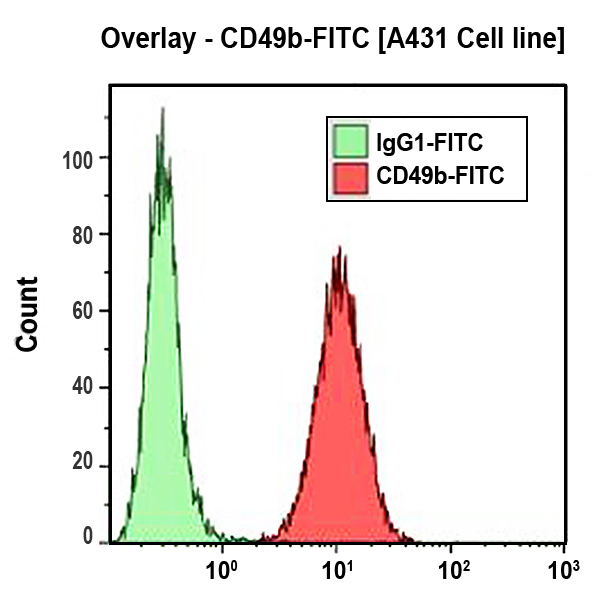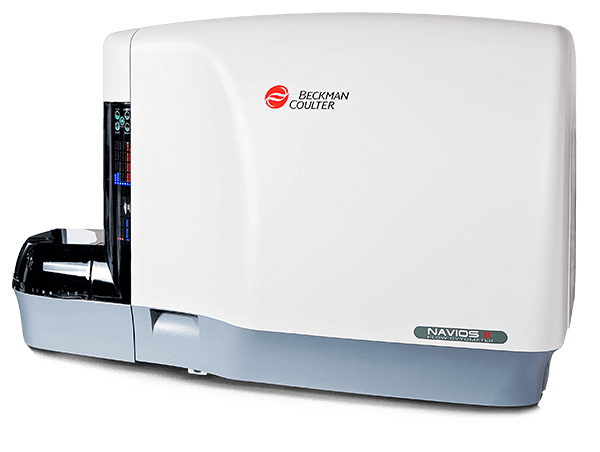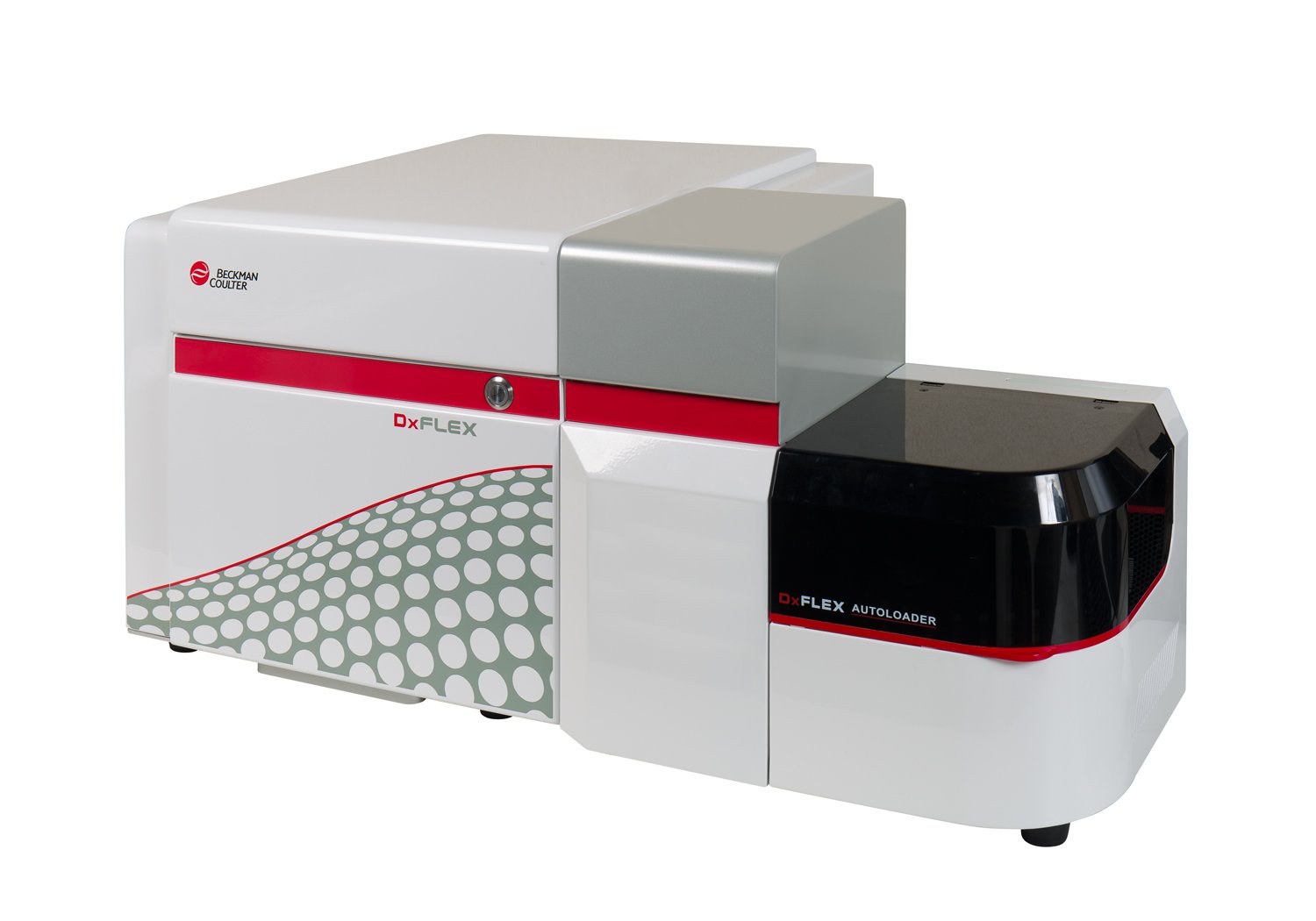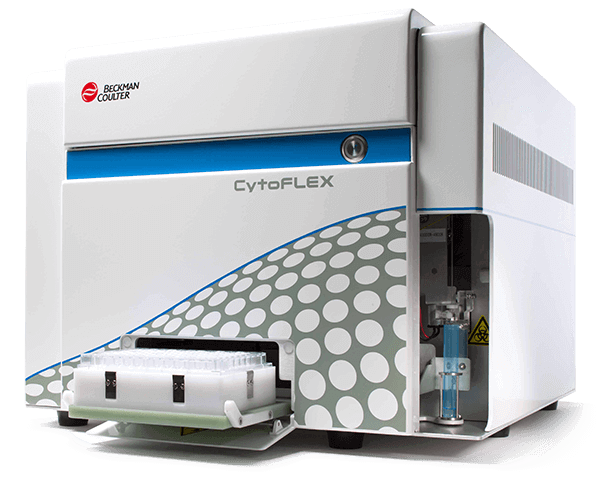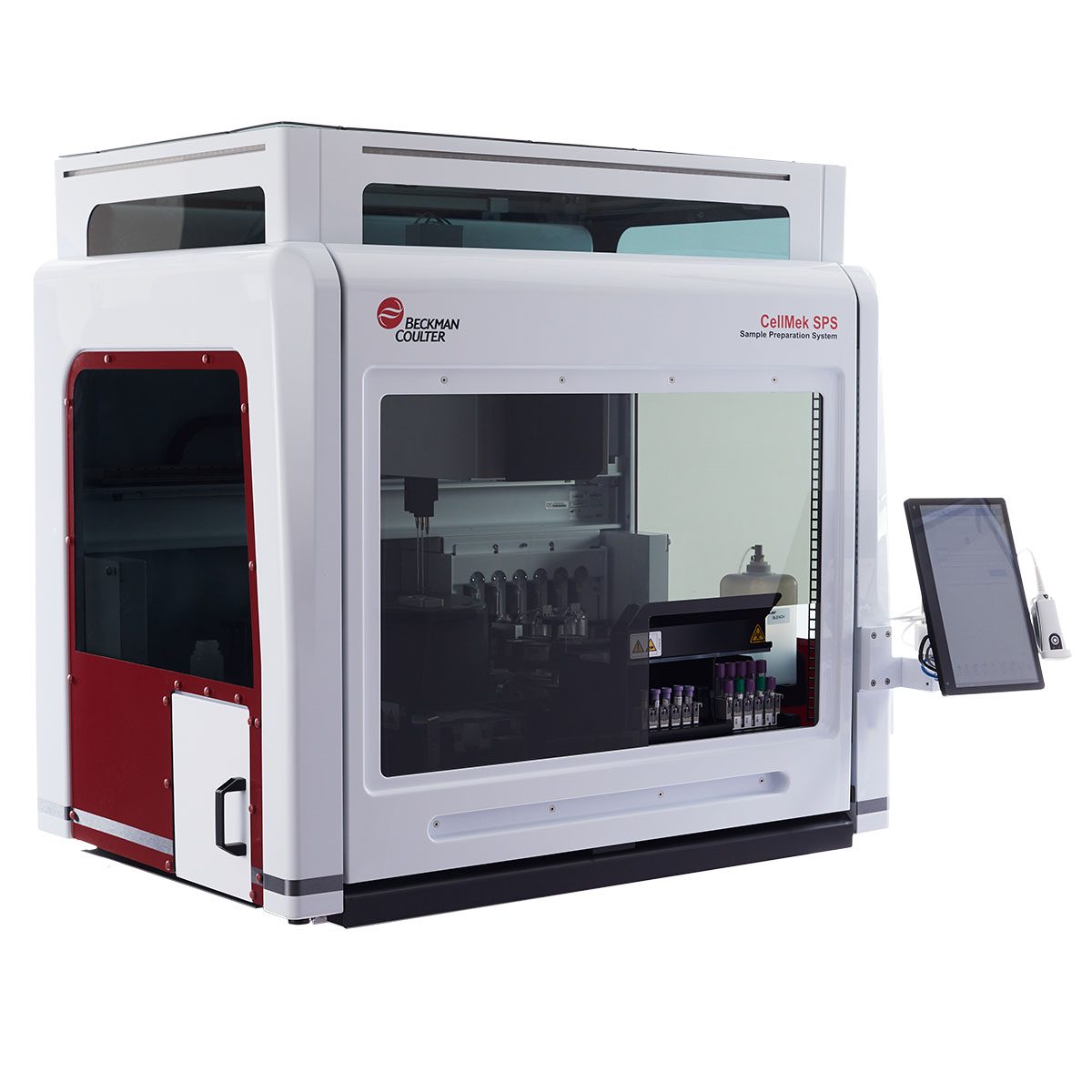CD49b Antibodies
The CD49b antigen is a transmembrane glycoprotein of 150 kDa also known as the α-2 integrin and as platelet GPIa. CD49b non-covalently pairs with the β-1 integrin (CD29, GPIIa) to form the VLA-2 (very late activation antigen) complex. CD49b, was first identified as an extracellular matrix receptor for collagens and/or laminins. It is now recognized that the α2β1 integrin serves as a receptor for many matrix and nonmatrix molecules. Extensive anlayses have defined distinct conformations that lead to inactive, partially active or highly active ligand binding. The mechanisms by which the α2β1 integrin plays a critical role in platelet function and homeostasis have been carefully defined. Studies have confirmed human physiology and disease states mediated by this receptor in immunity, cancer, and development. CD49b is expressed by platelets, activated T lymphocytes and thymocytes.
| Clone: Gi9 | Isotype: IgG1 Mouse |
| The Gi9 antibody reacts with the molecule carrying the Br(a) as well as the Br(b) alloantigen. This antibody inhibits the adhesion of platelets to collagen. It detects human alloantibodies (anti-Br a,b) against VLA-2 by MAIPA assay. Gi9 was used as a CD49b reference monoclonal antibody during the HLDA 6. Gi9 reacts with platelets and weakly with monocytes. It also stains most adherent cell lines and T lymphocytes in culture. | |

